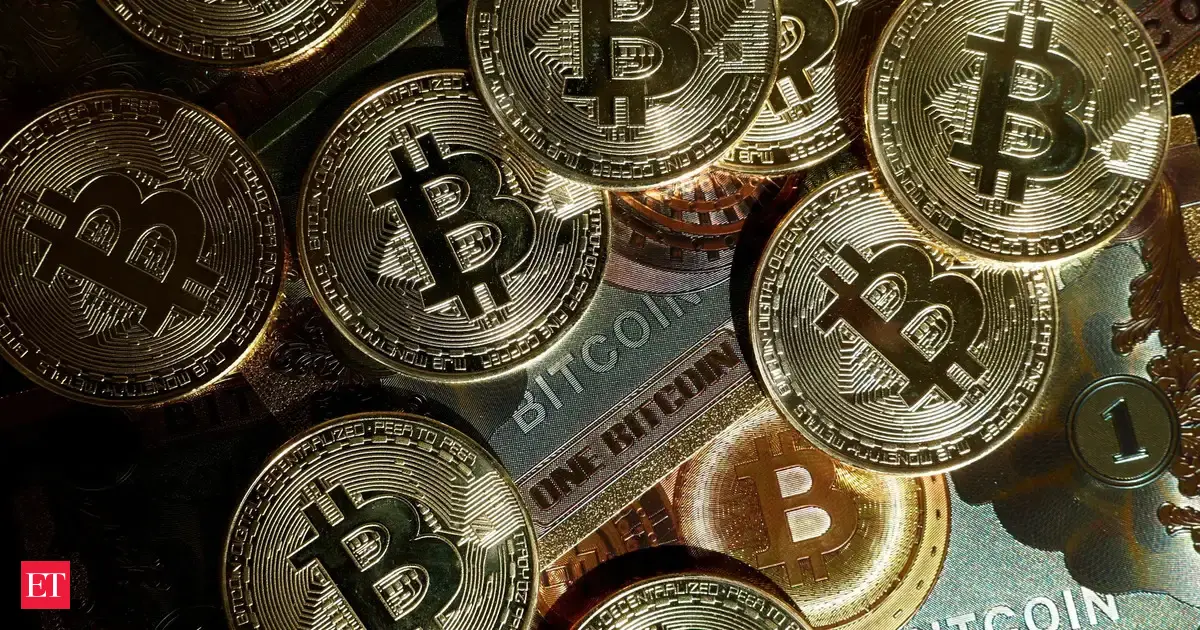Bitcoin Price Mining of digital finance, the Bitcoin Price turning point. Originally debuted in 2009 under the pseudonym Satoshi Nakamoto, it was intended as a decentralised alternative to conventional currencies. The objective was to design a peer-to-peer electronic cash system capable of operating independently of centralised entities, such as governments and banks. The worldwide recession of 2008 was wreaking havoc on the financial sector at the time, revealing structural flaws and inspiring general public mistrust of financial institutions. Launched in response to these events, Bitcoin presented a radically different paradigm based on openness, decentralisation, and cryptographic security. Bitcoin price and mining
The Mechanics Behind Bitcoin’s Operation
Operating under a proof-of-work system, Bitcoin uses miners to validate transactions and add them to the blockchain by solving challenging mathematical problems. Not only is transaction validation dependent on this mining process, but introducing new bitcoin into circulation also depends on it. Successful block mining results in a halving of the payout about every four years, a process known as halving that helps limit supply and accentuates Bitcoin’s price-deflating characteristics. Bitcoin’s fixed production limit of 21 million coins is among its most unique features. This scarcity distinguishes it from fiat money, which central banks can produce in unlimited quantities. Bitcoin’s issuance rate decreases as the total supply approaches its cap, enhancing its appeal as a store of value and supporting narratives comparing it to digital gold. Many investors and analysts have viewed Bitcoin as a hedge against inflation and monetary instability due to its decentralised control and predictable supply pattern.
Institutional Interest and Market Growth
Companies and institutional investors have gradually adopted Bitcoin in recent years. Noting its potential as a non-correlated asset and a long-term inflation hedge, high-profile corporations, including MicroStrategy, Tesla, and Square, have included Bitcoin in their treasury reserves. Additionally, joining the Bitcoin Market are financial behemoths like Fidelity and BlackRock, which provide clients with tools for investing in cryptocurrencies, hosting more acceptance and legitimacy.
Major financial services companies have also included Bitcoin, allowing consumers to purchase, hold, and spend the virtual currency. Along with growing public interest and media coverage, this mainstream acceptance coincided with a limited experiment; Bitcoin has become a major participant in the worldwide financial system. Its increasing liquidity, widening user base, and better infrastructure help to explain why it is the flagship digital asset in the cryptocurrency field.
Regulatory Landscape and Global Perspectives
Although becoming increasingly popular, Bitcoin operates in a complex legal context that varies between countries. Some nations have adopted the technology, as it can enhance financial inclusion and spur innovation. El Salvador made headlines by becoming the first country to adopt Bitcoin as a legal currency, aiming to increase economic engagement and reduce remittance costs for its citizens.
On the other hand, several countries have adopted a more cautious or limited approach, citing concerns about consumer protection, financial stability, and potential misuse in illegal activities. Regulatory agencies, such as the Financial Action Task Force, the European Central Bank, and the SEC, have published guidelines on the use, taxation, and compliance requirements for Bitcoin. Regulatory clarity should help to lower uncertainty and promote more responsible adoption across sectors and areas as it increases. Bitcoin’s
Role in Financial Empowerment
For those in underbanked or politically volatile areas, Bitcoin provides notable advantages. Its distributed character allows customers to control their assets without relying on unreliable, expensive, or unavailable conventional banking services. By allowing borderless, censorship-resistant transactions, Bitcoin helps people keep and move their wealth even in unfavourable political or financial environments.
Bitcoin provides a consistent alternative for maintaining purchasing power in countries experiencing hyperinflation or currency devaluation. It also enables low-cost remittances, allowing workers overseas to send money home quickly. These characteristics make Bitcoin especially beneficial for societies that have traditionally been excluded from the official financial system, supporting a broader goal of global financial inclusion.
Environmental Concerns and Technological Evolution
Because Proof of Work mining is energy-intensive, Bitcoin has been examined in terms of its environmental impact. Critics argue that its carbon footprint is unsustainable, particularly if non-renewable energy sources power the network. Proponents, however, point out that an increasing portion of Bitcoin mining already runs on renewable energy and that advances in mining efficiency are lowering its environmental impact.
The Bitcoin mining community is exploring ways to mitigate environmental concerns. Among the efforts are finding mining sites near renewable energy sources, utilising off-peak power from excess capacity, and promoting projects that advance environmentally friendly living. Technological developments, including the Lightning Network and second-layer solutions like Taproot, are also enhancing Bitcoin’s scalability, privacy, and efficiency, ensuring that it will continue to evolve in response to user needs and global trends.
Final Thought
Beyond its technological prowess, Bitcoin Price Mining has come to represent opposition to centralised authority and economic control. It marks a general tendency toward digital sovereignty, privacy, and personal empowerment. The Bitcoin ethos promotes open-source collaboration, voluntary participation, and transparency. Developers, investors, teachers, and activists, combined with a vision of a distributed financial future, comprise its worldwide community. Bitcoin’s impact extends to academic studies, political debates, and creative expressions. It has sparked numerous discussions on the nature of money, the role of political authority in finance, and the moral implications of surveillance capitalism. Bitcoin is, therefore, not only a financial instrument but also a potent ideological statement on how technology might transform society.


